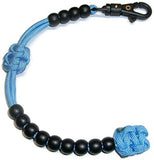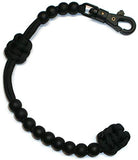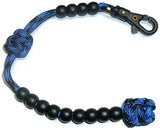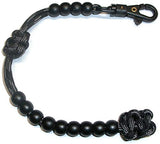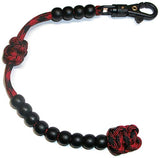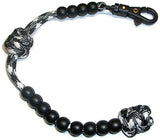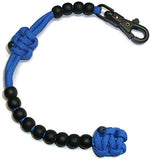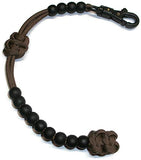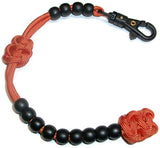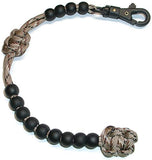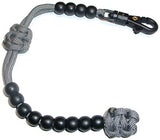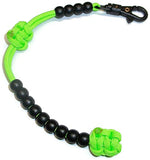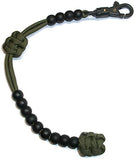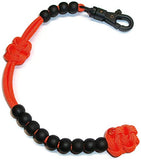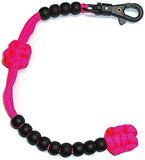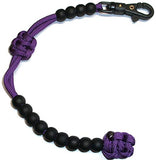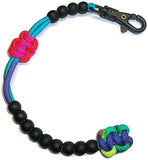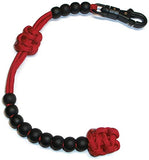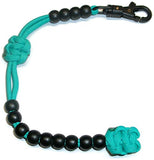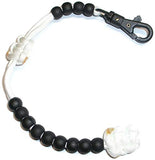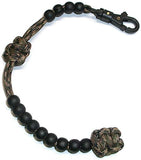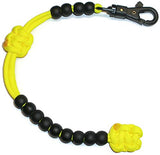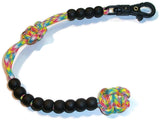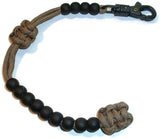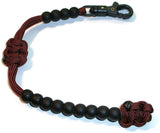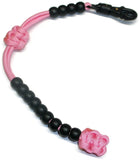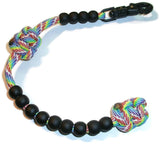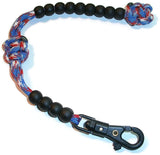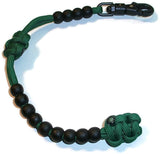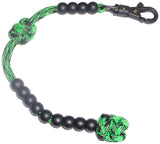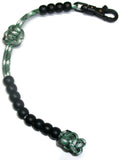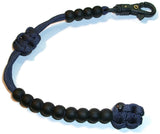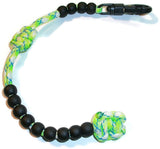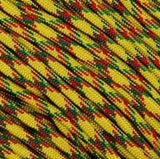Pace counters or ranger beads are manual counting tools used to keep track of distance traveled through a pace count. Made of 13 or more beads on a length of cord that are divided into two sections, separated by a knot. 9 beads are used in the lower section, and 4 or more beads are used in the upper section. This system was originally developed by our military. There are two ways to use the beads. One represents the paces you have walked, while the other is the distance walked. Getting your pace count: Measure out 100 meters Walk the entire 100 meters while counting every time your left foot touches the ground Use your typical stride and pace or your later count will be off Using the Beads Each of the bottom beads equals 100 meters traveled Each of the top beads represents a kilometer traveled While using your pace count, every time you have traveled 100 meters, slide one bead from the bottom section down Once you have used all 9 beads from the bottom section, you will then slide one of the top 4 down after you have traveled another 100 meters. This means you have traveled 1 kilometer. Separator is adjustable and can be moved up or down depending on your preference. We will customize your length or number of beads to suit your needs; contact us for more information. Please note: the ABS in the title of this listing stands for Acrylonitrile butadiene styrene It is a common thermoplastic polymer. Its glass transition temperature is approximately 105 °C (221 °F). ABS is amorphous and therefore has no true melting point. The nitrile groups from neighboring chains, being polar, attract each other and bind the chains together, making ABS stronger than pure polystyrene. The styrene gives the plastic a shiny, impervious surface. The polybutadiene, a rubbery substance, provides toughness even at low temperatures. For the majority of applications, ABS can be used between ?20 and 80 °C as its mechanical properties vary with temperature.



































